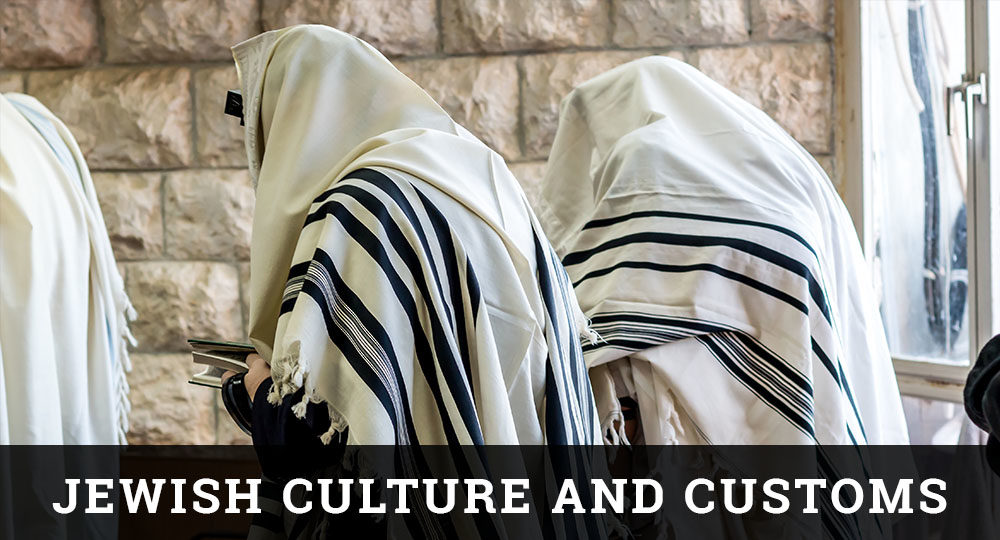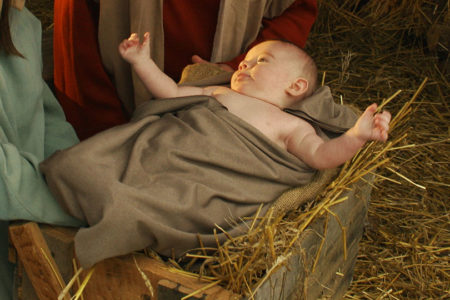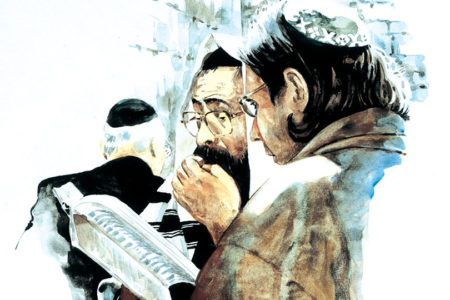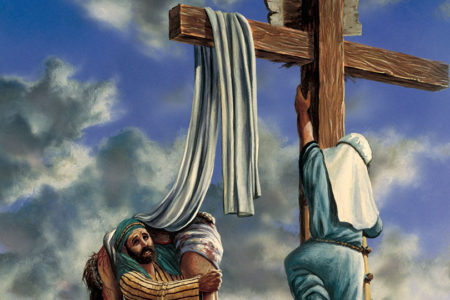Who Killed Jesus?
Picture this: A Jewish family spending quality time decorating a Christmas tree. Does this sound odd to you?
When I was 17, I was invited to a Christmas tree decorating party at the home of a Jewish acquaintance. Confusion would best describe my initial reaction to the invitation, followed shortly thereafter by contempt and hostility. I could not understand how a Jewish person could do such a thing.
As I pulled into the driveway, the green pine tree became visible through the open drapes of a huge picture window. As I walked into the house, I saw many of my friends, most of them Jewish, smiling and laughing. I was not amused. It did not take me long to ask the hostess why they, a Jewish family, were doing such a thing. The answer floored me. “My dad’s company doesn’t know that we’re Jewish. If they did, he probably wouldn’t be working there.” She went on to explain that her father was trained as an engineer. At that time, there weren’t many Jewish engineers, at least not in his company. He felt that in order to be hired, he had to change his last name to a common Gentile name and let people assume he was a Gentile. Decorating the Christmas tree was part of the charade because her father’s boss passed their home to and from work. Her explanation was no joke; she was quite serious. “Let’s face it,” she said, “to them we are nothing more than Christ killers.”
That incident took place almost 30 years ago, and while it is perhaps not typical in America, it would not shock most Jewish people. I believe, however, that it might surprise many Bible-believing Christians. I am often asked in churches, “Why don’t the Jewish people accept Jesus as their Messiah?” The people who ask that question usually are motivated by a sincere desire to know. After all, they reason, the prophecies are so clear, Jesus was Jewish, His followers were Jewish, and the New Testament was largely, if not entirely, Jewish. Why wouldn’t they believe? It would be a natural. My answer to them is in the form of a question: “Why do any Jewish people believe?”
This brings up another misconception—this time on the part of many Jewish people. It is a common understanding among Jewish people that all Gentiles are Christians, including the Crusaders and Hitler.
For two millennia, the Jewish people have been falsely accused by Gentiles, perhaps professing Christians, of countless horrible acts. In the Middle Ages, we were accused of starting the black plague. The “church” accused us of being a vile and dirty people who were, by our very nature, demonic. They argued strongly that the Passover commemoration was celebrated by drinking the blood of little children. Some even believed that Jewish men had horns on their heads, which they hid with head coverings. Prominent churchmen encouraged book burnings and synagogue demolitions. During the Crusades (1096), soldiers were heard commanding Jewish people to “embrace the cross or die.” While seeking to expunge the infidels (Muslims) from the Holy Land, the Crusaders believed it to be a spiritual bonus to terrorize, torture, and kill Jews.
In 1492, when Columbus “sailed the ocean blue,” being Jewish in Spain was hazardous to one’s health and well-being. Forced conversion was the only option for those who wished to remain and live in their beloved country. These kinds of things were carried over into pogroms in Russia and the Holocaust in Hitler’s Germany. To this day, being Jewish can be hazardous to one’s health. Almost every Jewish person is keenly aware that, like my friend of years ago, “we are nothing more than Christ killers.” For them, believing in Christ conjures up thoughts of all the atrocities committed in the name of Christ. Why would any Jew want to be associated with this bloody legacy?
Thankfully, recent years have brought both personal and denominational disclaimers, trying to make amends. The stigma of Christ’s dying at the hands of the Jews has even been removed from most official church documents. Yet centuries of diatribes against the Jews are not wiped clean by a few years of official changes on paper. The question concerning the death of Christ is a serious issue for Jews and Christians alike. It must not be answered in a politically correct fashion but, rather, in a frank, forthright, and truthful manner.
The essence of the Christian message is found in the simple yet sublime Christian hymn, “Because He Lives.” It begins, “God sent His Son, they called Him Jesus, He came to love, heal, and forgive.” Jesus the Messiah lives! Death could not stop Him, and the grave could not hold Him. He conquered sin and death by journeying from heaven to earth and taking on Himself the sins of individuals—past, present, and future. Who was responsible for His death? “Wasn’t it a Jewish crowd that cried out, ‘Crucify him! Crucify him!’?” one might ask. Yes, that is absolutely true, and it is recorded as such in Luke 23:21. But that is only one third of the answer.
The second part of the answer identifies the people who drove those spikes into the Lord’s hands and feet. It was, in fact, the Romans who performed that task. It was against Roman law for the Jewish people to carry out capital punishment. Incidentally, doesn’t it seem odd that people don’t call the Italians Christ killers?
The third part of the answer is the most important. In John 10:17–18 Jesus said, “I lay down my life, that I might take it again. No man taketh it from me, but I lay it down of myself. I have power to lay it down, and I have power to take it again.” Hebrews 9:14 states, “the blood of Christ, who through the eternal Spirit offered himself without spot to God…”
If history is based on people’s opinions, rather than on facts gleaned from proper sources, it is no longer true history but bobbe-myseh (wives’ tales). To say that the Jews killed Christ is correct only within the context that all people were responsible. Jews may have cried out for His death, but the Gentiles, who could have stopped it, willingly carried it out. Yet there He hung, because that was the only way to satisfy a Holy God for the sin that was a part of humanity. He willingly offered Himself for us. He did not have to do it.
Just five years after the Christmas tree decorating incident, I encountered something that seemed just as odd to me, but in an entirely different way. I encountered Gentiles—born-again Gentiles—meeting together with Jewish people to study the Bible. These Christians genuinely loved the Jewish people. They wanted to learn about Passover, Hanukkah, and Succoth. They understood that their Christian heritage is linked directly to the Jewish people. They understood that the Jews did not put Christ on the cross, nor did the Romans. Rather, it was their own sin—the sin of mankind—that put Him there. And, in His great love for His creation, He gave up His own life to save us all.






